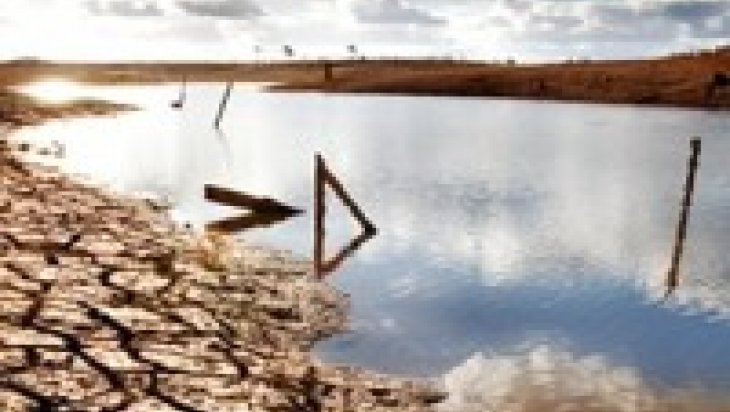Does Climate Change Affect Water War Scenarios in the Middle East?

Increasing human activities have created a great pressure on water resources in terms of both quality and quantity. Another pressure is caused by climate change and changes in precipitation patterns as a result of the climate change. According to the scientific studies, climate change was also observed before the industrial revolution. However, the aforesaid change was not as rapid as it has been today, and could be explained by natural causes such as volcanic eruptions, changes in solar energy and greenhouse gas (GHG) concentrations. Increasing human activities with the beginning of industrial revolution as from 1700s have accelerated the pace of climate change. The Fifth Assessment Report of Intergovernmental Panel on Climate Change (IPCC) titled, the Physical Science Basis published in October 2013 states that warming of the climate system is unequivocal since 1950s, and accordingly, it is extremely likely that human influence has been the dominant cause of observed warming since then. The report also asserts that water shortage and population negatively affected by the water shortage due to the new climate conditions will increase. The rising water demand observed in the regions especially in semi-arid and arid climate zone should be met through storing information regarding the vulnerabilities caused by the current climate change, and through adapting the management of water resources to new conditions. As mentioned in the report, water shortage which currently prevails in semi-arid and arid climate zone will become a chronic problem. Using the words semi-arid and arid climate zone and water shortage in the same sentence, one focuses the attention on the Middle East which also covers Turkey.
It is an unequivocal fact that there is a water shortage in the world and the problem will affect lives of billions of people in the upcoming years. Especially transboundary water basins should be held under the microscope. When it comes to transboundary basins, water is no more an internal matter of a state. Water supply of a riparian country depends on another riparian country. This situation makes water resources a national priority issue in the regions especially such as the Middle East where water is a limited resource. Since water resources are likely to entail conflicts in the recent years, global water problems are considered in the status of “priority policy”.
Water resources might serve as a driving force for both peace and war especially in the Middle East. Policies to be pursued by states could lead to a cooperation or a conflict. If there is no present agreement on basin, it is seen that use of water resources is directly proportional to power balances in the basin. Even though water is not a direct cause of war, it is observed that it has lost its technical feature and is directly affected by political balances. Water might serve as a cause of either cooperation or a conflict depending on the interests of states.
The first and only water war in the history took place between the states of Lagash and Umma in 2500 BC for water usage in the Tigris River basin, and both states ended the war by signing an agreement.
Conflicts broke out between Israel, Syria and Jordan to divert flows of Jordan and Yarmouk rivers in recent history between the years 1950-1960. Another cause of the 1967 Arab-Israeli war is the derivation of Jordan river waters. In the Euphrates-Tigris river basins to which also Turkey is a riparian country, there were disputes between Turkey, Syria and Iraq especially in 1980s and 1990s due to the water projects and dams built on the basin.
According to the 2012 report of the Arab Forum for Environment and Development (AFED), the Arab region will face an increase of 2.5ºC to 5.5ºC in the surface temperature by the end of the 21st century. Which is projected to lead to decrease in precipitation in the region by 20%. This shows that the amount of water in the region will be less than the projections which do not take climate change into consideration in the region. Of course, considering the history of water resources of great importance in the relations between the countries in the region, it would both cause to tension in bilateral relations from time to time, and also would be used as a political tool. However, none of the riparian countries could benefit from the tension and conflict so far. The solution is an inter-state cooperation which would make it possible for each riparian state to reach a win-win solution. Above all, it is required to provide a technical and political institutionalization that would also provide a productive use of water resources by considering the new climate conditions during this cooperation process. Water demand of the growing population in the region, food security concerns and ineffective use of water, and especially modern irrigation techniques in agriculture lead to a substantial water loss. While water management structure should be reorganized for productive use of water, especially users of water should be trained to use water economically. In addition to this, climate change would also change operation and functions of current water structures (e.g. hydropower, flood control, drainage and irrigation systems). According to the studies that have been carried out so far, current water management is not efficient enough to overcome the impacts of cliamte change. Water management also affects energy, environment, health, nature preservation and food policies. Hence, it is required to put forward deficiencies caused by the climate change and to adjust water-related managements into new conditions.







